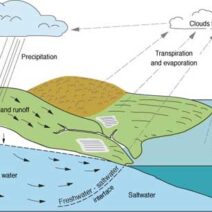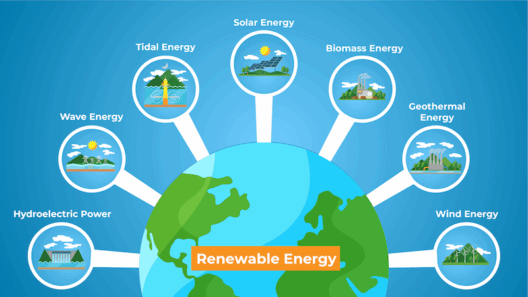Climate change is undoubtedly one of the most pressing issues of our time. Yet, despite the overwhelming scientific consensus on its existence and human causation, a significant portion of the population remains skeptical. This phenomenon, which can be perceived through both psychological and political lenses, reflects a complex interplay of belief systems, value frameworks, and cognitive biases. Understanding why some individuals resist the acknowledgment of climate change is essential in crafting effective communication strategies and fostering collective action.
At the core of climate change skepticism lies a psychological phenomenon known as cognitive dissonance. This occurs when individuals experience mental discomfort due to holding contradictory beliefs or attitudes. For instance, a person who operates a business that heavily relies on fossil fuels may be confronted with the science of climate change. Admitting its reality would necessitate a reckoning with personal and financial sacrifices that could be displeasing. To mitigate this discomfort, such individuals may reject the science altogether, embracing a narrative that undermines its validity.
This dissonance is not merely an individual issue; it reflects deeper societal narratives. Throughout history, certain worldviews have emerged that prioritize economic growth and technological advancement above environmental considerations. These views have fostered a culture of skepticism towards science that contradicts established beliefs that economic frameworks must be preserved, even at the expense of environmental integrity.
Moreover, the phenomenon of confirmation bias further complicates this dynamic. Confirmation bias is the tendency to seek, interpret, and remember information that affirms one’s preexisting beliefs while dismissing or undervaluing contradictory evidence. In the context of climate change, individuals may gravitate towards media sources and communities that reinforce their skepticism. This creates echo chambers that amplify their doubts and create a false sense of assurance regarding their beliefs. Thus, when faced with compelling evidence supporting climate change, skeptics may perceive this data as flawed or exaggerated, further entrenching their original positions.
These psychological mechanisms are exacerbated by political affiliations. In many countries, especially the United States, climate change has become a politically charged topic. Political ideology can significantly influence one’s viewpoint on environmental issues. Those aligned with conservative ideologies often express greater skepticism about climate change, viewing it through a prism of ideological values that prioritize limited government and free-market principles. Conversely, liberal ideologies tend to embrace the scientific consensus on climate change, advocating for regulatory measures to combat it.
This dichotomy is not merely superficial; it reproduces a heightened polarization where valid scientific discourse becomes bait for partisan conflict. Politicians and media figures often exploit this divide, painting climate change as a controversial issue rather than an established scientific fact. The politicization of climate science can lead individuals to conflate accepting climate change with endorsing specific political agendas, causing resistance among those who feel threatened by these ideologies.
Social identity also plays a critical role in shaping individuals’ beliefs about climate change. Humans inherently seek affiliation with groups that share similar values and beliefs. This innate desire for belonging can lead to a rejection of scientific information about climate change if such acknowledgment conflicts with the group’s stance. For example, individuals from communities that prioritize fossil fuel employment may view climate action as a direct threat to their livelihoods and communal identity. As a result, acknowledging climate change becomes a betrayal of one’s social group, further reinforcing skepticism.
It is essential to acknowledge the influence of misinformation and disinformation in this debate. The proliferation of misleading information, particularly through social media platforms, complicates the public understanding of climate science. Misrepresented or exaggerated claims regarding climate data can create confusion and skepticism, clouding the genuine scientific discourse. Individuals may question the integrity of climate science because they have encountered conflicting information that appears credible or aligns with their preexisting beliefs.
Importantly, the language we use in climate discussions can significantly impact how messages are received. Describing climate change in terms of doom and gloom can trigger defensive reactions, prompting individuals to disengage rather than engage critically. Herein lies a critical opportunity for advocates: reframing discussions around climate change towards themes of hope, innovation, and community can entice those skeptical of climate science to reconsider their positions. Highlighting success stories in renewable energy, sustainable practices, and local community initiatives can provide a compelling narrative that empowers rather than alienates.
Moreover, educational initiatives that foster a nuanced understanding of climate science are paramount in altering perceptions. Moving beyond mere data dissemination to cultivate critical thinking skills can encourage individuals to engage with climate science on a deeper level. This includes creating educational programs that emphasize the intersection of environmental science with social justice, economics, and community engagement. Such initiatives provide a platform for transformative dialogue, allowing individuals to explore their values and beliefs in relation to the pressing challenges posed by climate change.
In exploring why some people do not believe in climate change, we uncover layers of psychological resistance, political affiliation, and social identity that contribute to skepticism. By acknowledging these factors, advocates and educators can craft strategies that encourage open dialogue, foster curiosity, and ultimately bridge the divide. As the urgency of climate action continues to escalate, fostering understanding and collaboration across ideological barriers will be critical in mobilizing a unified response to this existential threat. The conversation surrounding climate change is not merely about presenting facts; it is about engaging individuals profoundly—inviting them to reflect and reconsider their stances for a more sustainable future.



